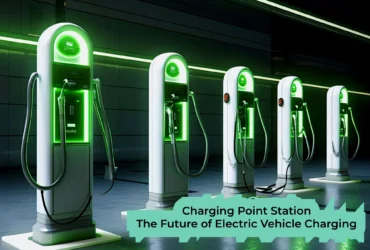Toyota hybrid Vehicle lineup is renowned for its exceptional durability and robust performance. Over the years, Hybrid Toyota Vehicles have set unprecedented standards in the hybrid market, combining reliability with eco-friendly technology. These cars are designed to withstand the test of time, with many owners reporting outstanding longevity and minimal maintenance needs. The engineering behind each hybrid car Toyota produces ensures that these vehicles are not only good for the environment but are also capable of delivering consistent performance under various driving conditions.
The secret behind the durability of a Toyota hybrid vehicle lies in its advanced hybrid technology, which seamlessly combines electric power with traditional combustion engines for optimal efficiency. This synergy not only reduces wear and tear on the engine but also enhances fuel economy, making a hybrid Toyota both a cost-effective and dependable choice for drivers around the globe. Furthermore, the performance of a hybrid car Toyota is complemented by its sophisticated design, ensuring a smooth and responsive driving experience that matches the needs of modern motorists.
How Do Toyota Hybrid Vehicles Stack Up in Longevity and Maintenance
When considering the longevity and maintenance of hybrid Toyota vehicles, it’s evident that these models stand out for their reliability and cost-effectiveness over time. Specifically, hybrid Toyota models such as the 2023 Toyota RAV4 Hybrid, Toyota Sienna, and the 2024 Toyota Corolla Cross Hybrid are designed with a hybrid powertrain that not only provides a more fuel-efficient ride but also tends to have fewer maintenance needs than traditional gasoline engines. The Toyota hybrid vehicle lineup, including the Toyota RAV4 Hybrid and the Toyota Highlander Hybrid, benefits from Toyota’s long-standing commitment to quality and innovation.
Moreover, the introduction of new Toyota hybrid cars and hybrid SUVs, such as the 2024 Toyota Camry Hybrid, 2024 Toyota Crown, and 2024 Toyota Venza, showcases the brand’s dedication to expanding its eco-friendly offerings. The 2024 Toyota Grand Highlander Hybrid and the 2024 Toyota Prius promise to elevate the hybrid experience with advanced technology and improved fuel economy.
The Toyota Sequoia, 2024 Toyota Sienna, and Toyota Hybrid SUVs like the 2023 Toyota Highlander and 2024 Toyota RAV4 Hybrid, represent the pinnacle of hybrid technology and durability. With a focus on minimizing the environmental impact without sacrificing performance, Toyota hybrid cars offer a compelling option for drivers looking to make a positive change. Whether it’s the efficiency of the 2024 Toyota Corolla Cross or the family-friendly Toyota Sienna, Toyota continues to push the envelope in hybrid vehicle design. As more drivers transition to hybrid and electric vehicles, Toyota’s robust lineup of hybrid Toyota models, including the luxurious 2024 Toyota Venza and the capacious 2024 Toyota Grand Highlander Hybrid, sets a high standard for longevity, reliability, and eco-conscious driving.
What is Toyota’s best selling hybrid?
As of my last update in April 2023, Toyota’s best-selling hybrid model is the Toyota Prius. Since its launch in 1997 as the world’s first mass-produced hybrid car, the Prius has become synonymous with the hybrid concept and has led sales in the category for many years.
However, it’s important to note that Toyota’s hybrid lineup has significantly expanded since the introduction of the Prius, including hybrid versions of popular models such as the Camry, RAV4, and Corolla.
In some markets, sales of these models have surged, challenging the Prius for the title of the brand’s best-selling hybrid. The Toyota RAV4 Hybrid, in particular, has seen strong sales in several markets, adding to Toyota’s hybrid success story.
Given the rapidly evolving automotive market and the increasing popularity of Toyota hybrid vehicle and electric vehicles, these standings may change, so it’s a good idea to check the latest sales data or Toyota’s official releases for the most current information.
What is the gas mileage on a Toyota hybrid car?
The gas mileage of a Toyota hybrid vehicle can vary significantly depending on the model and year. As of my last update in 2023, Toyota offers several hybrid models, including the Prius, Camry Hybrid, RAV4 Hybrid, Highlander Hybrid, Corolla Hybrid, and others. Each of these models offers different fuel efficiency ratings based on their design, weight, aerodynamics, and hybrid system.
For example, the Toyota Prius, one of the most fuel-efficient hybrids in Toyota’s lineup, often achieves combined city/highway mileage well above 50 miles per gallon (mpg). Specifically, the 2023 Toyota Prius has been rated by the EPA to achieve up to 57 mpg in the city and 56 mpg on the highway for its most efficient trim level.
The 2023 Camry Hybrid also shows strong fuel efficiency, with EPA ratings reaching up to approximately 51 mpg city and 53 mpg highway for its LE trim level.
For something larger, the 2023 RAV4 Hybrid boasts an EPA-estimated fuel economy of up to 41 mpg in the city and 38 mpg on the highway.
Keep in mind these figures can vary within model lines due to differences in engine size, vehicle weight, and specific hybrid system configurations across different trim levels. For the most accurate and up-to-date information, it’s always best to check the EPA’s official fuel economy ratings or Toyota’s official website for the specific model and year of interest.
What is the downside of a hybrid car?
Hybrid cars, which combine a gasoline engine with one or more electric motors, offer several benefits over conventional vehicles, including improved fuel efficiency and reduced emissions.
However, there are also some downsides to consider:
- Upfront Costs: Hybrid vehicles often come with a higher initial price tag compared to their gasoline-only counterparts. This is primarily due to the complexity of hybrid powertrains and the cost of battery technology, though prices have been decreasing over time.
- Battery Replacement: While hybrid vehicle batteries are designed to last for a significant number of miles, they may eventually require replacement, which can be expensive. The cost and availability of replacement batteries can vary depending on the make and model of the vehicle.
- Maintenance and Repair Costs: While routine maintenance costs for hybrids can be comparable to conventional cars, repair costs can be higher if complex hybrid-specific components fail outside of warranty. However, it’s worth noting that many hybrids have proven to be quite reliable.
- Vehicle Weight: Due to the additional weight of the battery pack and other hybrid components, these vehicles can be heavier than their non-hybrid counterparts. This extra weight can potentially affect handling and braking performance.
- Limited Model Options: While the selection of hybrid vehicles has significantly expanded in recent years, there may still be limited choices in certain segments or styles compared to conventional vehicles. This is rapidly changing, however, as more manufacturers commit to electrifying their lineups.
- Reduced Efficiency at Highway Speeds: Hybrids are most efficient in stop-and-go traffic where they can frequently regenerate energy through braking. On the highway, however, the gasoline engine often does the majority of the work, somewhat diminishing the fuel economy advantage over efficient non-hybrid vehicles.
- Environmental Impact of Batteries: Although hybrids produce lower emissions during operation, the production and eventual disposal of their high-voltage batteries raise environmental concerns. Mining the raw materials for batteries can be environmentally damaging, and while recycling programs are improving, there is still a long way to go in reducing the overall environmental footprint of battery manufacturing and disposal.
It’s important to consider these downsides in the context of your personal needs, driving habits, and priorities. For many drivers, the benefits of owning a hybrid, such as lower fuel costs and reduced emissions, may outweigh these potential drawbacks.
Is Toyota hybrid a reliable car?
As of my last update in April 2023, Toyota hybrid vehicle are generally considered to be highly reliable. Toyota has a long-standing reputation for reliability, and this extends to its hybrid models, such as the Prius, Camry Hybrid, RAV4 Hybrid, and Highlander Hybrid, among others. Toyota has been a pioneer in hybrid technology, launching its first Prius in 1997 in Japan, and has since sold millions of hybrid vehicles around the world.
Several factors contribute to the perceived and reported reliability of Toyota hybrids:
- Proven Technology: Toyota’s Hybrid Synergy Drive system has been refined and proven over decades of use. The technology is well-understood, and Toyota has continuously improved its reliability and efficiency.
- Customer Satisfaction and Reviews: Many consumer reports and surveys over the years have found that owners of Toyota hybrid vehicles are often highly satisfied with their cars. This satisfaction covers aspects of reliability, build quality, and the cost of ownership.
- Low Maintenance Costs: One aspect of reliability is how often a vehicle needs repairs and how much those repairs cost. Toyota hybrids tend to have lower maintenance requirements than traditional gasoline vehicles because they use their electric motors to reduce wear on the engine and brakes, leading to fewer issues over time.
- Longevity: There are numerous reports and stories of Toyota hybrids with high mileage (200,000+ miles) still running well, which speaks to their longevity and durability.
- Battery Life: One common concern with hybrids is the lifespan of the battery. However, Toyota hybrid batteries are known for their durability, and many vehicles exceed the life expectancy of the battery without major issues. Toyota also offers a warranty on their hybrid battery, which typically covers 8 years or 100,000 miles, and in some locations or newer models, the coverage is even longer.
While Toyota hybrid vehicles are generally reliable, individual experiences can vary, and as with any vehicle, regular maintenance is crucial to ensuring longevity and reliability. Consumer feedback, professional reviews, and reliability ratings from organizations like J.D. Power or Consumer Reports are helpful for potential buyers to check the latest information on specific models.
As with any car purchase, it’s advisable to research and consider reviews and reliability ratings for the specific model and year of the Toyota hybrid you’re interested in.
What is the life expectancy of a Toyota hybrid car?
The life expectancy of a Toyota hybrid car, like the Toyota Prius, is generally considered to be quite high, often surpassing 200,000 miles with proper maintenance. Many users and experts report these vehicles lasting well beyond that, with instances of Toyota hybrids reaching 300,000 to 400,000 miles not being uncommon.
The key factors influencing the longevity of a Toyota hybrid include regular maintenance, driving habits, and conditions under which the car is used. Toyota’s hybrid system, which combines a gasoline engine with one or more electric motors and a battery pack, is designed to be reliable and durable. The battery pack, often a point of concern for potential buyers, is designed to last for the life of the vehicle. Toyota typically warranties the hybrid battery for 8 years or 100,000 miles in the US, with some states like California extending that warranty to 10 years or 150,000 miles due to emissions regulations. However, many users find that the hybrid battery lasts much longer than this warranty period.
In addition to the hybrid system’s components, the overall build quality of Toyota vehicles contributes to their long service life. It is not unusual for owners who follow the recommended maintenance schedule, including timely oil changes, tire rotations, and inspections, to experience very few issues over many years of ownership.
Keep in mind, as with any car, individual experiences can vary based on a multitude of factors such as model year, specific vehicle model, usage patterns, and maintenance practices. But overall, Toyota hybrids have earned a reputation for durability and longevity, offering good value for their owners over time.
Are hybrid cars high maintenance?
One of the key benefits touted about hybrid cars, especially those manufactured by leading brands like Toyota, is their reputed lower maintenance costs in comparison to traditional gasoline vehicles. This can be attributed to the hybrid’s dual power system, which combines an internal combustion engine with an electric motor. This setup reduces wear and tear on the engine because the electric motor can take on some of the work, potentially leading to longer intervals between maintenance requirements.
Moreover, regenerative braking, a standard feature in hybrid cars, also contributes to the lower maintenance narrative. This technology captures energy usually lost during braking and uses it to recharge the battery. As a result, brake pads and rotors in hybrids often have a longer life compared to those in conventional vehicles.
However, it’s essential to note that while overall maintenance may be lower, some components in hybrid cars, notably the battery, can be costly to replace if they fail outside warranty periods. Toyota has worked hard to mitigate these concerns by offering extended warranties on hybrid batteries, showcasing their confidence in the durability and reliability of their hybrid vehicles.
Are Toyota hybrids more reliable than gas cars?
Toyota has long been a pioneer in hybrid technology, with the Prius becoming nearly synonymous with the hybrid concept. This dedication to hybrid vehicles has translated into a reputation for reliability that often surpasses that of traditional gas cars. Hybrids, by design, rely on both a gasoline engine and an electric motor, which can reduce the wear and tear on the engine through shared power responsibility.
This can lead to fewer mechanical issues over the lifespan of the vehicle. Furthermore, Toyota’s extensive experience and continual refinement of its hybrid technology contribute to the durability and dependability of these vehicles.
How much does it cost to replace a Toyota hybrid battery?
The cost to replace a Toyota hybrid battery can vary significantly depending on several factors, including the model of Toyota hybrid you own and where you choose to get the replacement. Generally, the price range for replacement can be between $1,500 and $4,000. This price encompasses not just the battery itself, but also the labor costs for installation, which can account for a significant portion of the overall expense.
The higher end of this price range typically applies to more recent models or those that require a more complex installation process. Additionally, opting for a battery from an official Toyota dealership can also result in a higher price, whereas choosing a third-party provider might lessen the financial burden. However, it is crucial to ensure that any third-party battery meets Toyota’s specifications and quality standards to avoid potential issues with performance or compatibility. To potentially offset some of the cost, Toyota’s hybrid batteries come with a warranty—usually 8 years or 100,000 miles, whichever comes first, but this can vary by region and model year.
Who makes most reliable hybrids?
Toyota has long been celebrated for its commitment to reliability and sustainability, making it a leader in the hybrid vehicle market. The brand’s hallmark Prius, which burst onto the scene in the late 1990s, set the benchmark for hybrid technology, merging fuel efficiency with dependability. Beyond the Prius, Toyota has expanded its hybrid technology across a broad spectrum of vehicles, including SUVs like the RAV4 Hybrid and sedans like the Camry Hybrid.
This expansion solidifies Toyota’s reputation for producing some of the most reliable hybrids on the market. Their vehicles consistently receive high marks for longevity, low maintenance costs, and strong resale value, making a Toyota hybrid an appealing choice for consumers seeking a dependable eco-friendly vehicle.
Can a Toyota hybrid battery last 20 years?
The longevity of a Toyota hybrid battery is a topic of considerable interest among car owners and prospective buyers. In ideal circumstances, with proper maintenance and use, a Toyota hybrid battery can indeed last upwards of 20 years. This exceptional lifespan is attributed to Toyota’s advanced hybrid technology and the company’s commitment to producing high-quality, durable batteries. However, it’s important to note that the actual lifespan can vary significantly based on driving habits, climate conditions, and how well the battery and the hybrid system are maintained. Regular check-ups and adherence to Toyota’s maintenance recommendations are crucial for maximizing battery life.









